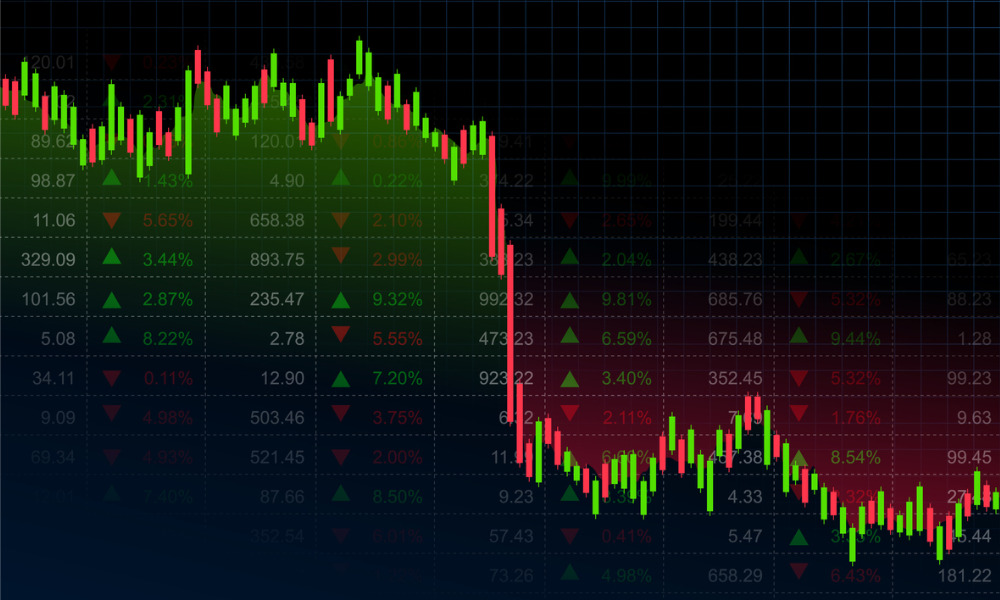

European stocks and US equity futures fluctuated while Treasuries dropped as traders tracked efforts by the US and its allies to prevent further escalation of the Israel-Hamas conflict.
Technology stocks led declines in Europe’s Stoxx 600 index after Bloomberg reported that the US is considering further restrictions to curb China’s access to advanced semiconductors. Polish stocks jumped the most since May 2022 and the zloty rallied as a bloc of pro-European opposition parties appeared on track to unseat the nationalist government.
“The zloty should continue to strengthen further in the near-term in anticipation of improving relations with the European Union that will help to support growth and attract capital inflows,” said Lee Hardman, senior currency analyst at MUFG Bank.
Markets steadied slightly after last week’s rush into haven assets, as traders await further developments in the Middle East. S&P 500 contracts and those for the Nasdaq 100 were steady. Treasury 10-year yields rose more than six basis points after dropping 19 basis points last week. Gold declined more than 1%.
Oil prices traded in a narrow range as US officials rushed to speak with Middle Eastern nations — including back-channel talks with Iran — to contain the conflict. A sharper escalation could bring Israel into a direct clash with Iran, a supplier of arms and money to Hamas, which the US and the EU have designated a terrorist group.
A gauge of Asian shares slipped as stocks dropped in mainland China despite the central bank making the biggest medium-term liquidity injection since 2020.
Headwinds in China’s markets are growing. The US has moved to tighten curbs on advanced chip technology and concerns continue about the mainland property sector. The People’s Bank of China injected a net 289 billion yuan ($39.6 billion) via a medium-term lending facility on Monday and kept the policy rate unchanged at 2.5%.
The US said it will tighten sweeping measures that restrict China’s access to advanced semi-conductors and chip-making gear in a bid to prevent its geopolitical rival from getting a military edge.
Elsewhere in currencies, a gauge of dollar strength edged lower, while New Zealand’s dollar led gains among major peers after the country elected a center-right government on Saturday.
Traders are also keeping a close eye on the latest economic data and parsing comments from central bank officials for clues on the policy outlook. Federal Reserve Bank of Philadelphia President Patrick Harker said disinflation is under way and reiterated that he favors holding interest rates where they are, barring a sharp change in data, despite a lift in US consumers’ year-ahead inflation expectations in early October.
Key updates on the state of the global economy due this week include Chinese growth figures, inflation readings in Japan, the UK and the euro zone. Meanwhile, Fed chairman Jerome Powell is set to speak later this week following a string of stronger-than-expected data readings.
Key events this week:
Some of the main moves in markets:
Stocks
Currencies
Cryptocurrencies
Bonds
Commodities
This story was produced with the assistance of Bloomberg Automation.

Relationships are key to our business but advisors are often slow to engage in specific activities designed to foster them.

Whichever path you go down, act now while you're still in control.

Pro-bitcoin professionals, however, say the cryptocurrency has ushered in change.

“LPL has evolved significantly over the last decade and still wants to scale up,” says one industry executive.

Survey findings from the Nationwide Retirement Institute offers pearls of planning wisdom from 60- to 65-year-olds, as well as insights into concerns.
Streamline your outreach with Aidentified's AI-driven solutions
This season’s market volatility: Positioning for rate relief, income growth and the AI rebound
